Looking Up, 16-page English PDF Edition, Back Issues and Current Issue
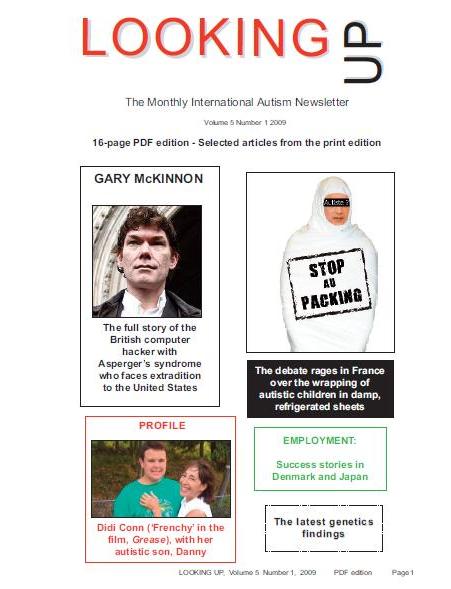
|
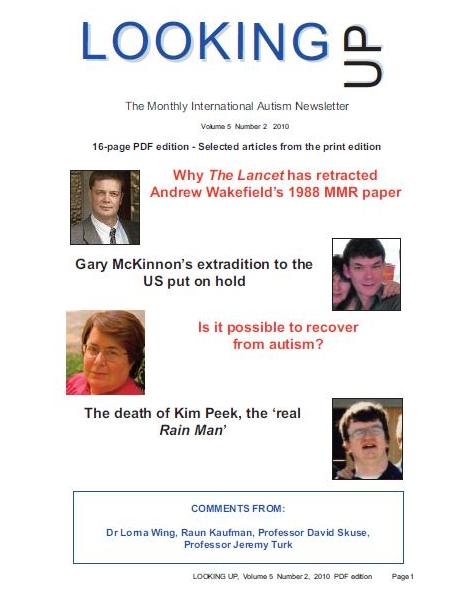
|
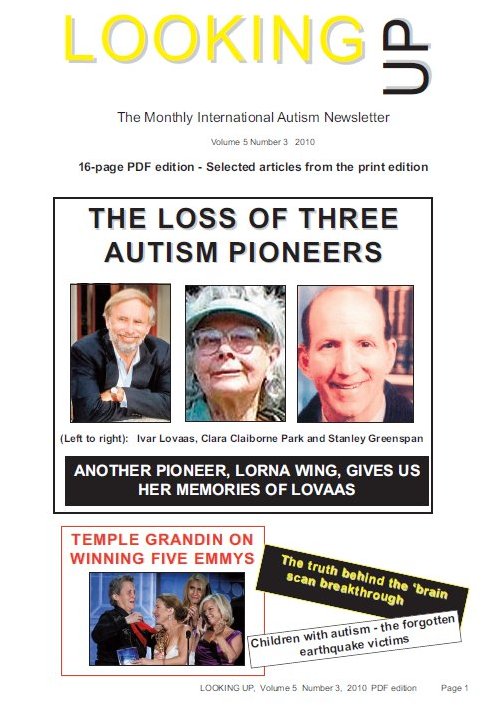
|
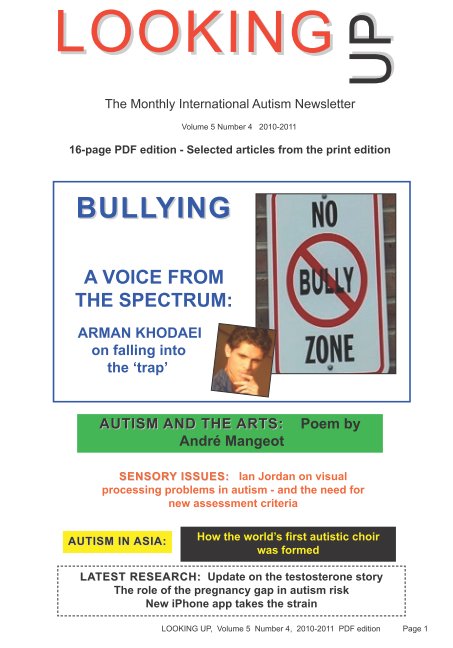
|
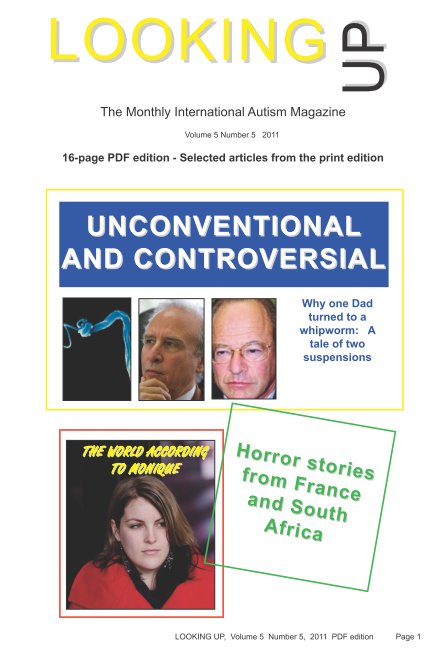
|
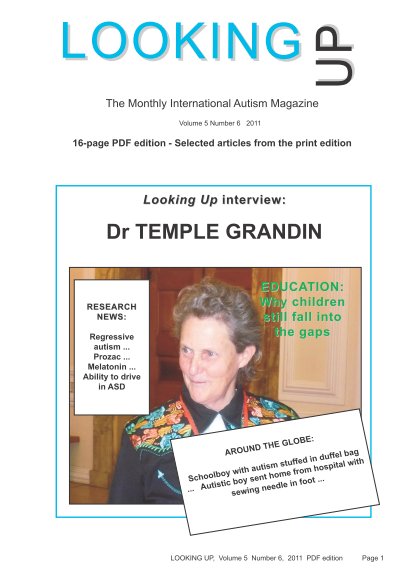
|
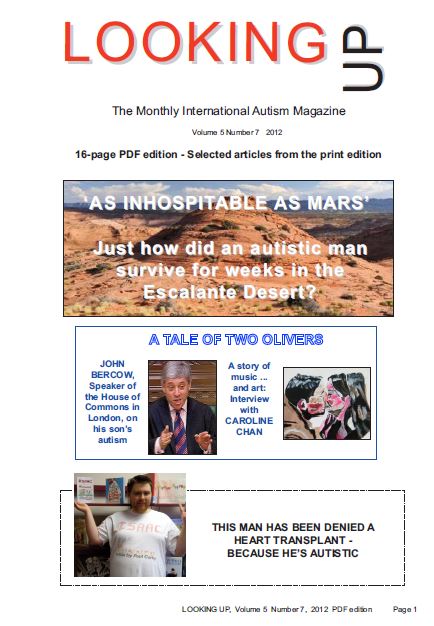
|
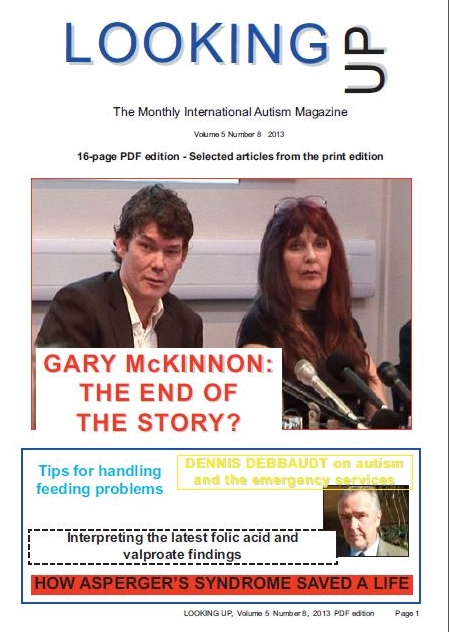
|
| Home page | Subscribe (print edition) | Selected articles | Our publications | Our mailing lists |
| PDF edition | Subscribe (PDF edition) | Back issue contents | Autism books | Contact us |
Their study, which involved the largest and most comprehensive trials of the hormone yet conducted, is published in the November 2002 issue of the Journal of the American Academy of Child Adolescent Psychiatry.
“The
message to parents is that there is no evidence that secretin is
effective and
should be given to children with autism,” said Dr Geraldine Dawson,
director of
the
The study is believed to be the first to measure the effectiveness of both natural porcine secretin and a synthetic form of the hormone and a placebo. Secretin is a naturally occurring human hormone produced in the small intestine that helps control digestion and is used in diagnosing gastrointestinal problems.
Autism is a disorder which interferes with a child’s ability to communicate and relate socially with other people. Affected individuals can also have a restricted range of activities and interests, and about 75 per cent of children with autism also have some form of mental retardation. The disorder is far more common than previously thought, affecting more than half a million Americans.
The researchers found that neither form of secretin reduced the symptoms of autism beyond the effects noted for the placebo.
“With autism, we know there is a very large placebo effect, so you have to show a bigger effect to say a treatment worked,” said Dr Dawson. “We don’t fully understand the mystery of the placebo effect in medicine. But the expectancy that a treatment will work can have a real positive impact. It is not an imagined effect, but real change because of the expectancy of some possible change.”
Dr Dawson told Adam Feinstein, Editor of Looking Up: “The placebo effect can be really startling, at times.”
In the study, 85 children diagnosed with autism and ranging in age from three to 12 years were each given a single intravenous injection of one type of secretin or a placebo in randomised, double-blind trials.
The children were evaluated on a number of factors, including language, social functioning and behavioural problems by parents, teachers and researchers one week before receiving the injection and again four weeks after being injected. None of those doing the evaluations knew what type of injection each child received. Parents were asked about their child’s behavioural and sleep problems and their vocabulary, while teachers were primarily asked about behavioural problems. In laboratories, investigators rated and diagnosed the children in a play-based interaction that tested social and communication functioning. The children were also given a vocabulary test.
In addition, the researchers compared children with and without gastrointestinal problems, common symptoms for many people with autism. The initial report claiming benefits from secretin in the late 1990s came from a study in which the hormone was used in diagnosing a child’s gastrointestinal problems. Again, Dr Dawson said, the new study showed that there was no response beyond that shown from the placebo.
“Secretin is not a magic bullet,” she said. “When parents first heard about the initial reports, some were paying huge sums of money for secretin treatment. The National Institutes of Health decided to commission this study in response to a high-visibility case where parents were using a treatment that had not been assessed. The available evidence suggests there is no role for secretin. There is still a possibility that repeated doses of secretin might have an effect. But we think parents should use treatments that we know are effective, such as behavioural interventions and, in some cases, drugs to treat associated symptoms such as attention problems and hyperactivity which affect many children with autism.”

|

|

|

|

|

|

|

|
| Current 40-page print edition issue | |||||||||||||||
|---|---|---|---|---|---|---|---|---|---|---|---|---|---|---|---|
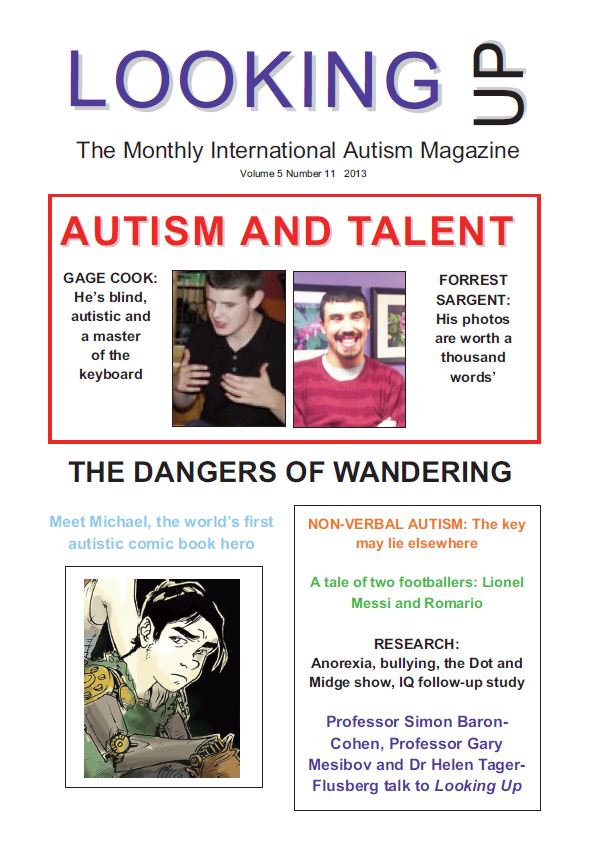
|
| ||||||||||||||
| PRINT EDITION BACK ISSUE CONTENTS AND FRONT COVERS | ||||||||||||||||||||||||||
|---|---|---|---|---|---|---|---|---|---|---|---|---|---|---|---|---|---|---|---|---|---|---|---|---|---|---|
| VOLUME 1, Number: | 1 | 2 | 3 | 4 | 5 | 6 | 7 | 8 | 9 | 10 | 11 | 12 | VOLUME 2, Number: | 1 | 2 | 3 | 4 | 5 | 6 | 7 | 8 | 9 | 10 | 11 | 12 | |
| VOLUME 3, Number: | 1 | 2 | 3 | 4 | 5 | 6 | 7 | 8 | 9 | 10 | 11 | 12 | VOLUME 4, Number: | 1 | 2 | 3 | 4 | 5 | 6 | 7 | 8 | 9 | 10 | 11 | 12 | |
| VOLUME 5, Number: | 1 | 2 | 3 | 4 | 5 | 6 | 7 | 8 | ||||||||||||||||||
| You can find our PDF EDITION CONTENTS AND COVERS on our PDF EDITION BACK ISSUES PAGE | ||||||||||||||||||||||||||
| Home page | Subscribe (print edition) | Selected articles | Our publications | Our mailing lists |
| PDF edition | Subscribe (PDF edition) | Back issue contents | Autism books | Contact us |